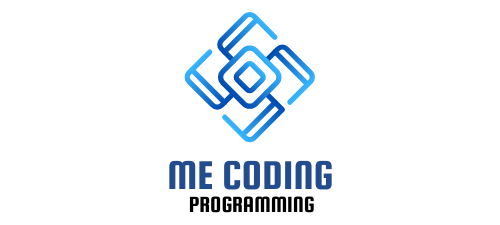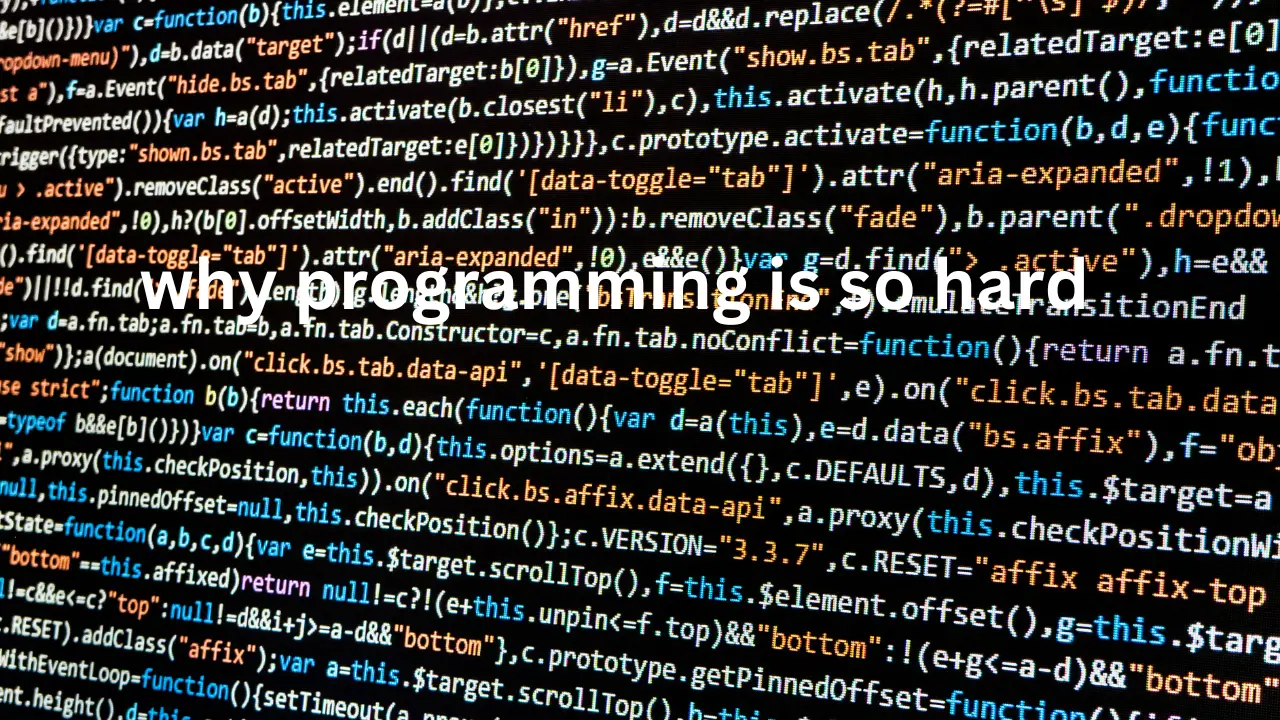In today’s digital age, programming has become an integral part of our lives. From mobile apps to complex software systems, programming enables us to bring our ideas to life in the form of code. However, many aspiring programmers find themselves grappling with the challenges that come with learning and mastering this skill. In this article, we will explore why programming is often considered difficult, the hurdles programmers face, and the strategies to overcome them.
Understanding the Complexity of Programming
Programming can be challenging due to its inherent complexity. It involves writing instructions in a programming language that a computer can understand and execute. The syntax, logic, and problem-solving skills required can be overwhelming, especially for beginners. However, with time and practice, one can develop a solid foundation and become more proficient.
The Learning Curve: Embracing the Challenge
Learning to program is often compared to climbing a steep learning curve. The initial stages may seem daunting, but as you gain familiarity with concepts and acquire problem-solving techniques, the curve gradually becomes less steep. Patience, persistence, and a growth mindset are key to overcoming this initial hurdle.
Problem-Solving: The Core of Programming
At its core, programming is all about problem-solving. Programmers face various challenges, such as logical errors, bugs, and algorithmic complexities. Developing strong problem-solving skills and employing systematic approaches can help programmers tackle these obstacles effectively.
Overcoming Errors and Debugging
Errors and bugs are an integral part of programming. Even experienced programmers encounter them frequently. Debugging, the process of identifying and fixing errors, is a crucial skill to master. Attention to detail, meticulous testing, and leveraging debugging tools can streamline this process.
Staying Updated: The Ever-Evolving Landscape
Programming languages and frameworks evolve rapidly. Keeping up with the latest trends and updates is essential for programmers to stay relevant and ensure their code is efficient and secure. Continuous learning and staying engaged with the programming community are crucial in this ever-changing landscape.
Balancing Creativity and Structure
Programming combines the art of creativity with the discipline of structure. While creativity fuels innovation and unique solutions, adhering to coding standards and maintaining clean code enhances readability and maintainability. Striking the right balance between creativity and structure is key to producing high-quality code.
Collaboration and Teamwork in Programming
Programming is not always a solitary endeavor. Many projects require collaboration and teamwork. Working with other programmers, sharing ideas, and effectively communicating are essential skills that contribute to successful outcomes. Collaborative tools and version control systems facilitate seamless collaboration.
Time Management and Efficiency
Programming projects can be time-consuming, and effective time management is crucial. Breaking tasks into manageable chunks, setting realistic deadlines, and prioritizing deliverables are vital for efficient project execution. Time management skills ensure productivity and help programmers meet project milestones.
Dealing with Frustration and Burnout
Programming can be mentally taxing, and frustration is a common experience for programmers, especially when faced with complex challenges. Learning to manage frustration and avoiding burnout is essential for long-term success. Taking breaks, seeking support from the community, and practicing self-care contribute to a healthier programming journey.
The Importance of Documentation
Documentation is often overlooked but plays a crucial role in programming. Writing clear and concise documentation helps programmers understand their own code and enables collaboration with others. Documentation serves as a reference guide and ensures the maintainability and scalability of software projects.
Building Resilience: Learning from Failure
Failure is an inherent part of the programming journey. Debugging errors, encountering setbacks, and facing coding challenges are opportunities for growth. Embracing failure, learning from mistakes, and persisting through difficulties are traits that build resilience in programmers.
Mastering Multiple Programming Languages
With a multitude of programming languages available, mastering a single language is no longer sufficient. Exploring and gaining proficiency in multiple languages broadens programmers’ skill sets and opens doors to diverse opportunities. Each programming language has its own strengths and areas of application.
The Role of Continuous Learning
The field of programming is dynamic and ever-evolving. Continuous learning is essential for programmers to stay updated, embrace new technologies, and enhance their expertise. Engaging in online courses, attending workshops, and participating in coding challenges are effective ways to foster continuous growth.
Striking a Balance: Theory vs. Practice
Balancing theoretical knowledge with practical application is crucial in programming. While understanding fundamental concepts is important, hands-on coding experience solidifies learning. Regular coding practice, working on real-world projects, and building practical applications are essential for bridging the gap between theory and practice.
Celebrating Success: Milestones and Achievements
In the world of programming, celebrating milestones and achievements is vital for motivation and self-confidence. Whether it’s successfully completing a project, overcoming a challenging bug, or mastering a new programming concept, acknowledging and celebrating accomplishments boosts morale and fuels further progress.
Conclusion
Programming presents various challenges, but with perseverance, dedication, and a growth mindset, these challenges can be overcome. Embracing the complexities, developing problem-solving skills, staying updated, and fostering a resilient mindset are key to success in the world of programming.
FAQs
1. Is programming only for highly technical individuals? Not necessarily. While programming requires logical thinking and problem-solving skills, individuals from diverse backgrounds can learn and excel in programming.
2. How long does it take to become proficient in programming? Becoming proficient in programming depends on various factors, including prior experience, dedication, and the complexity of the chosen programming language. It is a continuous learning process that evolves over time.
3. Can I learn programming on my own, or do I need formal education? Both options are possible. Many programmers are self-taught, leveraging online resources and tutorials. Formal education in computer science or related fields can provide a structured learning path and a deeper understanding of programming concepts.
4. How can I overcome programming-related frustrations? Managing frustrations in programming involves taking breaks, seeking support from the programming community, and practicing self-care. Patience, persistence, and maintaining a positive mindset are also helpful.
5. Are there any programming languages that are easier for beginners? Some programming languages, like Python, are considered beginner-friendly due to their simplicity and readability. However, the choice of language depends on personal preference and the intended application.

